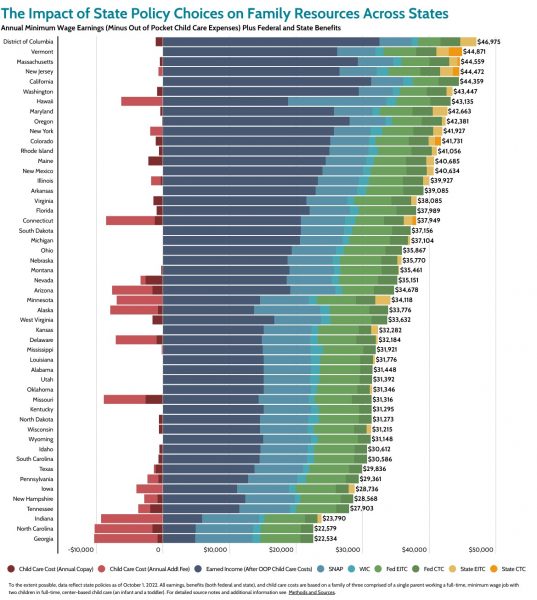The Tennessee Commission on Children and Youth’s annual KIDS COUNT State of the Child report features information from the 2022 Prenatal-to-3 State Policy Roadmap created by the Prenatal-to-3 Policy Impact Center at Vanderbilt Peabody College of education and human development.
The State of the Child report examines data on the health and well-being of children in Tennessee as well as the potential for federal and state aid to improve children’s health and address economic, education, and child welfare and justice concerns.
The state’s report includes data from the Roadmap on programs that support infants and families, including that an estimated 2.5 percent of eligible children under the age of three are served by evidence-based home visiting programs; only 2 percent of SNAP-eligible families with children under age 18 are not receiving SNAP, making Tennessee the best state for SNAP service; and that only 3.8 percent of income-eligible children have access to Early Head Start, making Tennessee one of the worst states for supporting families with this service.
Other Roadmap data included in the state’s report address hardships faced by Tennessee families living in poverty. A family of three with income at 150 percent of the federal poverty level spends 24.2 percent of its income on childcare costs, 27.2 percent of children under the age of three with one parent working full-time live at or near the poverty level, and 24 percent of low-income women of childbearing age do not have any health insurance.
The state’s report also references the Roadmap graph showing the impact of state policy choices on family resources across states based on a calculation of annual minimum wage earnings (minus out-of-pocket child care expenses) plus federal and state benefits. Tennessee is the fourth worst state in the country for minimum wage income, with families having access to just $27,903 a year, about $19,000 less than is available to similar families living in the District of Columbia, where minimum wage earnings are highest. Based on these data, the state’s report suggests that “Increasing state minimum-wage, expanded income eligibility for health insurance, paid family leave, and a refundable state earned income tax credit are all opportunities for Tennessee to increase support for infants and families across the state.”



